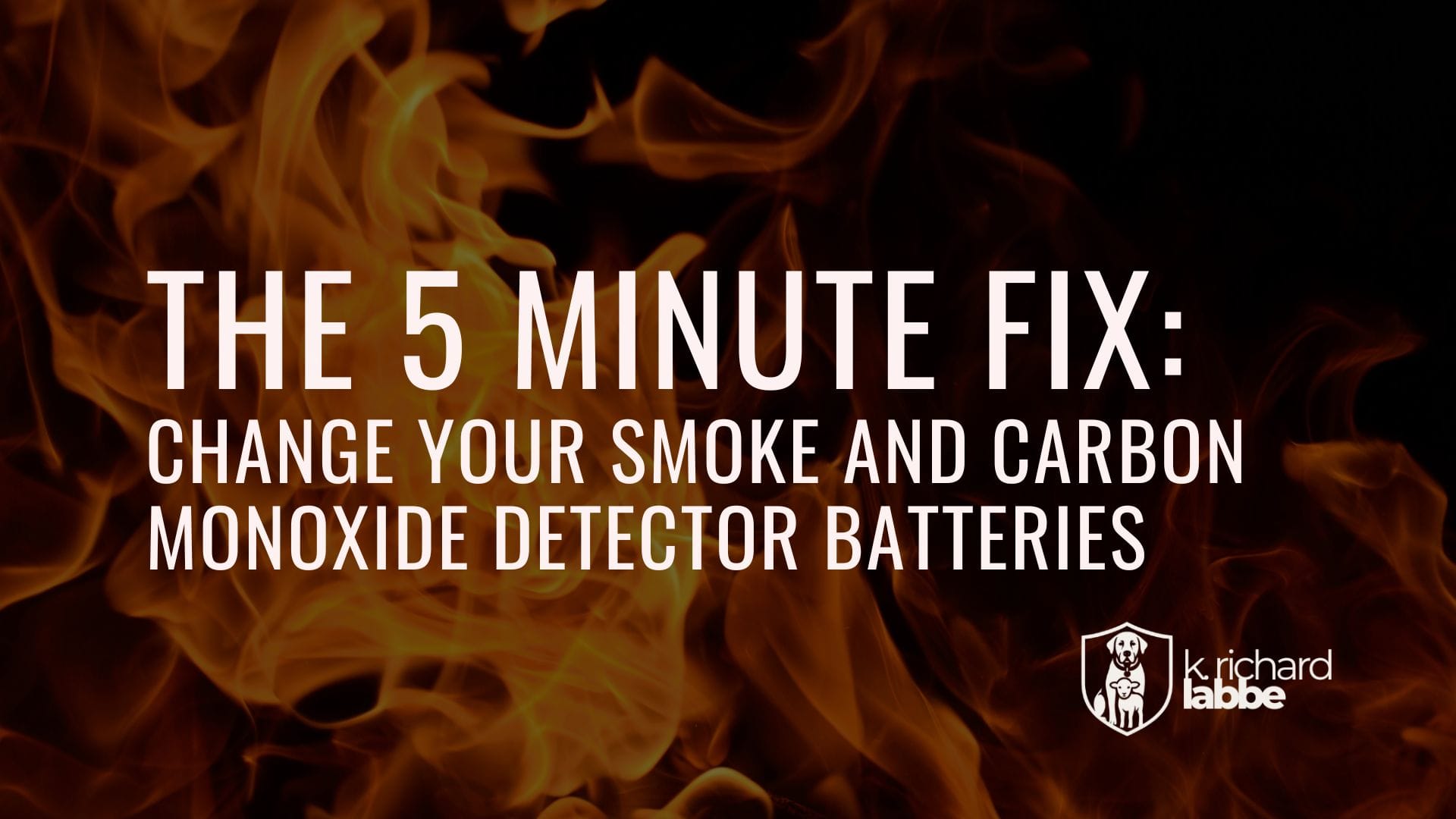Change Your Smoke and Carbon Monoxide Detector Batteries: The 5-Minute Fix That Saves Lives
Don’t let a dead battery put your family at risk. Learn when to replace smoke and carbon monoxide detector batteries, which ones to trust, and how this simple habit could save lives.

It starts with a chirp at the worst possible time—usually 3 AM, naturally. Your first instinct is to yank out the battery, stop the noise, and deal with it tomorrow.
Here's why tomorrow might be too late.
The Grim Math
Three out of five home fire deaths happen in houses with smoke alarms that don't work—usually because of dead or missing batteries. That's not a small oversight. That's the difference between waking up to escape and not waking up at all.
Carbon monoxide is worse in some ways because you can't see it, smell it, or taste it. Hundreds of Americans die from accidental CO poisoning each year, and tens of thousands end up in the hospital. Often from something as simple as a blocked vent or malfunctioning heater.
The defense is almost embarrassingly simple: a working battery in the right place.
The Twice-a-Year Rule
Pick two dates you'll remember. Daylight saving time works for some people. New Year's Day and July 4th for others. What matters is consistency, not perfection.
Battery-operated detectors need fresh batteries every six months. Hardwired units with battery backup can go a year. Those sealed 10-year lithium units don't need battery changes—but they do need complete replacement after a decade.
If you're helping elderly parents or relatives, add their detectors to your list. Often they can't hear the warning beeps as well, or they can't safely reach the units to change batteries.
The Expiration Date Most People Miss
Even detectors that still beep can be useless. Smoke detectors expire after 10 years, carbon monoxide detectors after 5-7 years. Check the manufacture date printed on the back of the unit.
This catches people off guard because the device seems fine. It's not. The sensors degrade over time, regardless of how the battery is doing.
What Batteries Actually Work
You want reliability, not the cheapest option at the checkout counter. Energizer MAX and Duracell CopperTop 9V batteries work well for most alarms. For detectors that use AA batteries, Energizer Ultimate Lithium batteries last longer and perform better in temperature extremes.
Skip rechargeable batteries unless your detector manual specifically allows them. They can discharge unpredictably and fail without warning—exactly what you don't want in a safety device.
Detector Placement That Makes Sense
Put smoke detectors on every level of your home, inside each bedroom, and outside sleeping areas. Mount them on the ceiling or high on walls—smoke rises.
Carbon monoxide detectors go on every level too, but especially near sleeping areas and fuel-burning appliances like furnaces, water heaters, and fireplaces. Don't put them in garages or directly next to appliances where they might false alarm.
Why This Actually Matters
When you change that battery, you're not just stopping an annoying noise. You're buying time—time to wake up, time to get out, time to call for help.
You're showing the people in your house that their safety isn't negotiable. That includes you.
Five minutes twice a year. Set a phone reminder if you need to. Write it on the calendar. Ask a neighbor to remind you.
Whatever it takes to make it happen. Because that chirp in the middle of the night? It's not trying to annoy you.
It's trying to save you.
Stay safe. Be ready. Online and off.
Every effort has been made to ensure the accuracy and reliability of the information presented in this material. However, Labbe Media, LLC does not assume liability for any errors, omissions, or discrepancies. The content is provided for informational and educational purposes only and should not be considered professional advice. Viewers are encouraged to verify any information before making decisions or taking actions based on it.
Some links in this post are affiliate links, which means I may earn a small commission if you purchase through them—at no extra cost to you. I only recommend products I use or would trust in my own home.
